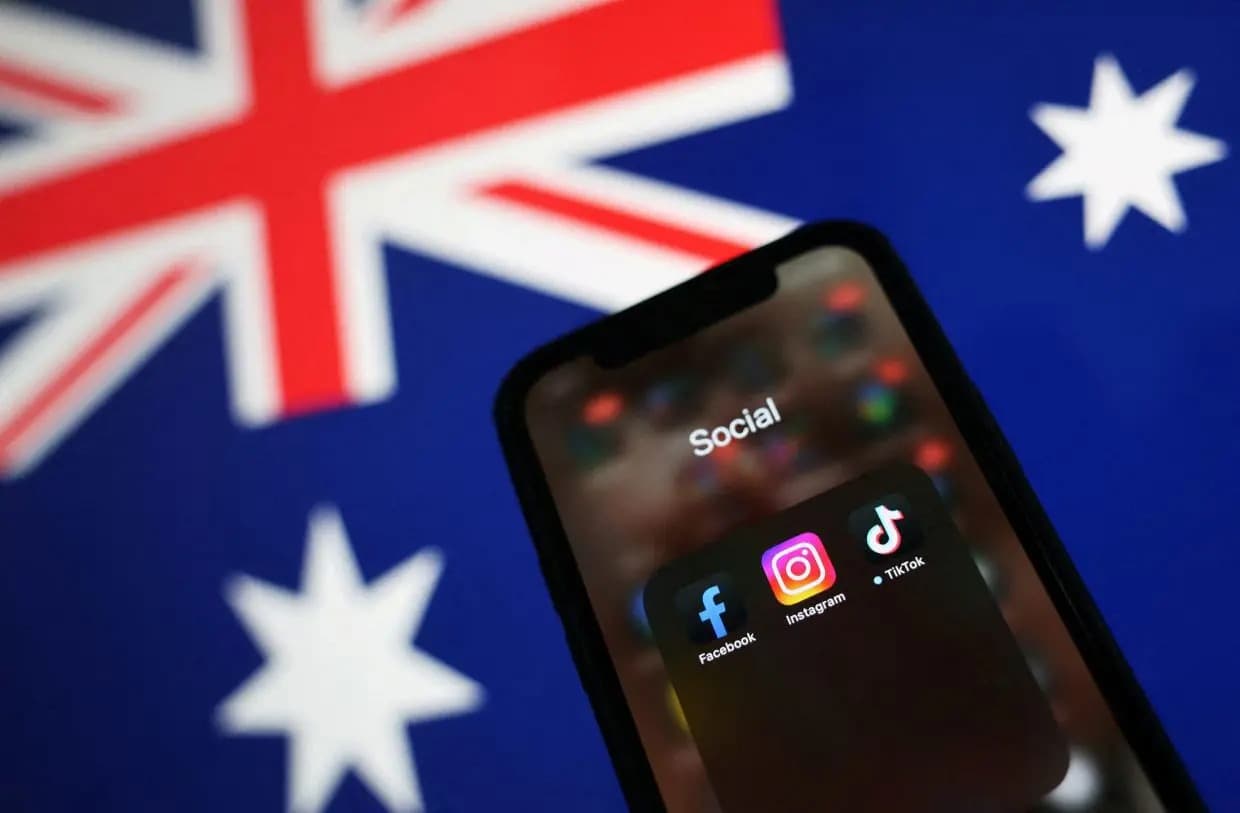
Australia Leads the Way with Landmark Social Media Ban for Under-16s
New Law Aims to Tackle Cyberbullying, Harmful Content, and Election Interference with Strict Age Verification Rules
Australia has taken a pioneering step in social media regulation by passing a landmark law that bans children under the age of 16 from creating accounts on platforms such as Facebook, Instagram, and X (formerly Twitter). This legislation, approved with bipartisan support, positions Australia at the forefront of efforts to tackle issues related to cyberbullying, illegal content, and election interference.
As the global conversation around the regulation of social media intensifies, Australia’s approach sheds light on the evolving relationship between governments, tech companies, and the online world.
What the Law Entails
The new law mandates social media platforms to take "reasonable steps" to prevent users under 16 from creating accounts. This includes implementing robust age-verification systems and compliance with new standards to ensure minors are not accessing their platforms unlawfully.
Social media firms failing to comply with the regulations could face heavy penalties, though the specific measures of enforcement and monitoring remain under development.
Why Was the Law Introduced?
The legislation is a response to growing concerns over the harmful effects of social media on young users, including:
-
Cyberbullying: The rise in online harassment among teenagers has led to serious mental health issues, including anxiety, depression, and even suicide.
-
Illegal Content: Social media platforms have struggled to curb the spread of harmful or illegal content, which often targets or affects minors disproportionately.
-
Election Meddling: The spread of misinformation and propaganda has prompted governments to take greater control of digital spaces.
According to Australian lawmakers, social media platforms have failed to self-regulate effectively, necessitating government intervention.
Social Media Laws Around the World
Australia is not alone in regulating social media, though its age-specific ban is among the strictest. Here’s a look at how other countries are addressing social media issues:
-
United States
The U.S. has yet to implement federal laws regulating age restrictions for social media, but individual states like Utah and Arkansas have passed laws requiring parental consent for minors to create accounts. The Children’s Online Privacy Protection Act (COPPA) remains a cornerstone of protecting minors’ data.
-
United Kingdom
The UK’s Online Safety Bill enforces strict requirements for social media platforms to protect users from harmful content, particularly minors. Failure to comply could result in fines amounting to billions of pounds or even a ban on operating in the UK.
-
European Union
Under the General Data Protection Regulation (GDPR), platforms must obtain parental consent for processing the personal data of users under 16. Additionally, the EU’s Digital Services Act holds platforms accountable for illegal content, misinformation, and targeted ads aimed at children.
-
China
China has implemented strict laws governing online content for minors. Platforms are required to limit screen time for underage users and provide age-appropriate content. The government also bans minors from using gaming apps for more than three hours a week.
-
India
India has proposed similar measures under its Personal Data Protection Bill, which includes provisions to protect children’s data and limit their exposure to harmful content. However, enforcement remains a challenge in the rapidly growing digital space.
Legal and Ethical Implications
-
Protecting Children’s Rights
Laws like Australia’s emphasize the need to protect children from the harms of unrestricted social media access, balancing their rights to free expression with their need for safety.
-
Challenges of Enforcement
One major issue is the effectiveness of age verification systems, as tech-savvy teens often find ways to bypass restrictions. “I’ll find a way. And so will all my other friends,” said a 12-year-old in response to the new law.
-
Accountability of Tech Companies
The legislation puts the onus on social media firms to comply with government regulations. Failure to adapt could result in legal and financial penalties, marking a shift in how these platforms operate globally.
-
Privacy Concerns
Age verification and monitoring systems raise concerns about data privacy, especially for minors. Governments and platforms must ensure that protective measures do not come at the expense of users’ privacy rights.
-
The Way Forward
Australia’s new law sets a precedent for nations grappling with the social and ethical challenges posed by social media. While critics argue that overly restrictive measures could alienate younger users and drive them to unregulated platforms, supporters believe such laws are necessary to curb the negative impact of social media on vulnerable populations.
This landmark move calls for a collaborative approach, where governments, tech companies, and civil society work together to create a safer digital space for all users, particularly minors. As Australia implements its new regulations, the global community will closely watch its impact and effectiveness in addressing the pressing issues of the digital age.